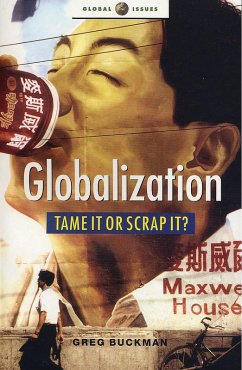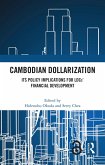'Globalization is irreversible and irresistible.'
Tony Blair
This book gives the lie to that claim. Economic globalization has never been an inevitable part of human history. It is eminently reversible and hugely resistible.
Greg Buckman argues there are two broad approaches within the anti-globalization movement. One, perhaps the most widely supported and influential strand today, calls the Fair Trade and Back to Bretton Woods school. This argues for immediate reforms of the world's trading system, capital markets, and global institutions, notably the World Bank, IMF and WTO. The other, the Localization school, takes a more root and branch position and argues for the abolition of these institutions and outright reversal of globalization. Buckman explains the details of each school's outlook and proposals, their weaknesses, where they disagree, their common ground, and where they might come together in campaigns.
This book gives the lie to the claim that globalization is 'irreversible and irresistible'. Greg Buckman argues there are two broad approaches within the anti-globalization movement, explaining the details of each school's outlook, their weaknesses, where they disagree, their common ground, and where they might come together in campaigns.
Tony Blair
This book gives the lie to that claim. Economic globalization has never been an inevitable part of human history. It is eminently reversible and hugely resistible.
Greg Buckman argues there are two broad approaches within the anti-globalization movement. One, perhaps the most widely supported and influential strand today, calls the Fair Trade and Back to Bretton Woods school. This argues for immediate reforms of the world's trading system, capital markets, and global institutions, notably the World Bank, IMF and WTO. The other, the Localization school, takes a more root and branch position and argues for the abolition of these institutions and outright reversal of globalization. Buckman explains the details of each school's outlook and proposals, their weaknesses, where they disagree, their common ground, and where they might come together in campaigns.
This book gives the lie to the claim that globalization is 'irreversible and irresistible'. Greg Buckman argues there are two broad approaches within the anti-globalization movement, explaining the details of each school's outlook, their weaknesses, where they disagree, their common ground, and where they might come together in campaigns.









